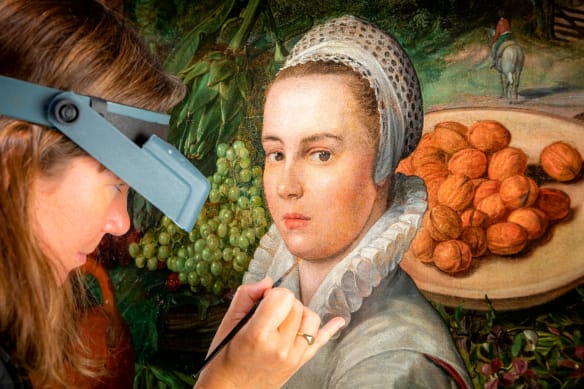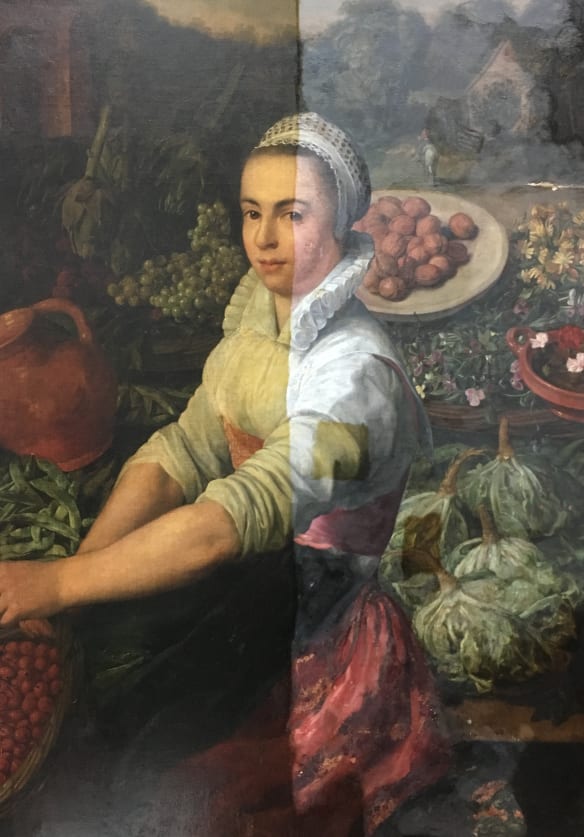This 'Vegetable Seller' is much older -- and grumpier -- than we realized
The restoration of an old unsigned painting has wiped the smile off one young woman's face -- and given art historians more clues about its origins.
The 16th-century Flemish painting, known as "The Vegetable Seller," was brought to Audley End House in southeast England in the 18th century.
In 2019, a team from conservation charity English Heritage set about restoring it after a condition survey revealed that it needed restoration.
A cleaning test on the painting, initially assumed to be an 18th-century work, revealed something else. "We realized what bright, lovely colors lay below the discolored varnish," Alice Tate-Harte, Collections Conservator at English Heritage, told CNN.
"We took the dirt layer off, then we took the varnish layer off, and that allowed us to see the quality of the paint below: not only the colors, but the look of the paint. You can start seeing its age, the cracks, the abrasion pattern that you see in the early Netherlandish pictures," she explained.

With her smile removed, the subject is "more confronting," English Heritage conservator Alice Tate-Harte said. Credit: Christopher Ison/English Heritage
This led staff to believe that the painting was actually older than had first been thought -- and allowed them to distinguish between the original paint and overpaint, which had been added when the painting had previously been restored.
Conservators got to work on the subject of the painting -- who, up until then, wore a serene smile.
"There was a lot of overpaint on her face, and on her white chemise, and the apron of her skirt, and the corner," Tate-Harte said, adding that an earlier restorer probably retouched the painting because of water damage or cracking in the paint.
"Restorers didn't follow the conservation ethics that we do today," she said.
"More and more of her face was revealed -- we realized she wasn't meant to be smiling at all. She actually had quite a serious expression," she said. This, she said, was in the style of the Antwerp painter Joachim Beukelaer.

Experts now think "The Vegetable Seller" may be the work of 16th-century Flemish painter Joachim Beuckelaer. Credit: Christopher Ison/English Heritage
Conservators from English Heritage now think they have uncovered "strong evidence" to link the work to Beuckelaer, who lived between 1535 and 1575, and believe it could even have been painted by the artist himself.
Tate-Harte said the subject's changed expression is an "improvement."
"I think it benefits it -- it's showing that it is a 16th-century painting," she said.
"She's much more confronting the viewer -- she is much more of a strong woman now, a bit less passive," she added..According to English Heritage, the restoration also revealed a greater spectrum of colors in the fruit and vegetables in the picture.
"Many of the fruit and vegetables depicted would now be considered heritage varieties, and some will have been lost entirely from cultivation," English Heritage noted in a statement.
The painting is on display at Audley End House, about 50 miles northeast of London, from Friday.
https://edition.cnn.com/style/article/vegetable-seller-smile-intl-scli-gbr/index.html


No comments:
Post a Comment